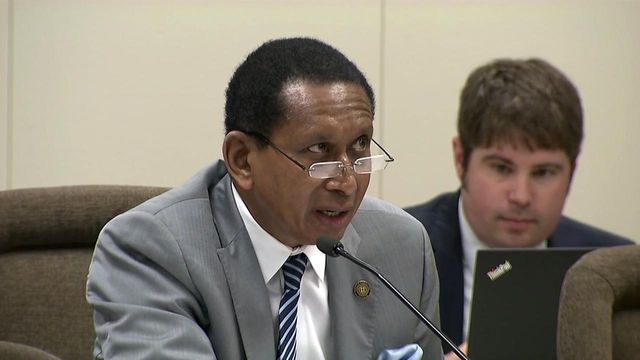Senate tax-cut plan would benefit families, NC firms
About 94,000 North Carolina taxpayers would no longer pay state income tax under a proposal that cleared the Senate Finance Committee on Wednesday, according to one of its sponsors.
Posted — Updated"[It] represents a tax cut to 99 percent of all the individual income taxpayers in North Carolina. They will either receive a tax cut or pay zero income tax," said Sen. Tommy Tucker, R-Union. "It primarily impacts ... those people whose income is between $20,000 and $50,000."
The proposal also would convert the state's $125 child tax credit to a deduction of up to $2,500 and would increase the itemized deduction for mortgage interest and property taxes.
On the business side, the corporate tax rate would drop from 3 percent to 2.5 percent over the next two years, and the state would shift to "market-based sourcing," meaning companies would be taxed only on revenue from in-state sales and not total sales.
Combined with "single sales factor," which lawmakers adopted two years ago so companies will no longer be taxed on equipment or personnel in North Carolina, Sen. Ralph Hise, R-Mitchell, said the state is creating a tax code that never tells a business, "We are penalizing you for being in this state."
The corporate changes will actually boost state revenue by $10 million a year, officials said, by offsetting the tax cuts to North Carolina businesses with tax money from out-of-state firms, especially broadcasters, based on their sales in the state.
Overall, the measure would lower revenue to the state by about $3.45 billion over the next five years.
Sen. Floyd McKissick, D-Durham, said the state might be better served investing that money in infrastructure and education.
"While I understand what the goal is here, it does concern me that we really have significant needs as a state," McKissick said. "I just think we are cutting ourselves short."
Tucker responded that not only has state revenue grown in recent years, which will allow such investments, but much of the proposed cuts will go to people in rural counties, where it will likely be reinvested in the local economy.
Finance Chairman Sen. Jerry Tillman, R-Randolph, was more blunt in assessing McKissick's criticism.
"When Republicans have a surplus, we do two or three things: We give it back to the taxpayers who we took too much from, we put it into savings and we spend it on programs. When Democrats do this, they spend it all," Tillman said. "That's why we got in this hole we got in. We're getting out of it now, and all of a sudden, you and the governor want to spend these surplus funds."
The bill passed on a voice vote and is one step away from a vote in the full Senate.
Related Topics
• Credits
Copyright 2024 by Capitol Broadcasting Company. All rights reserved. This material may not be published, broadcast, rewritten or redistributed.





